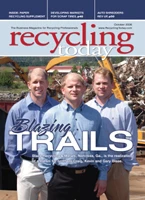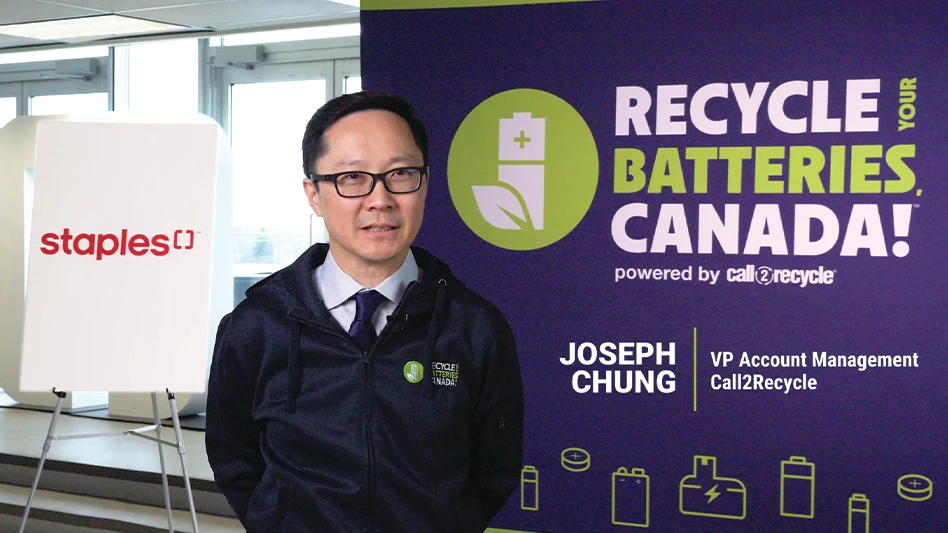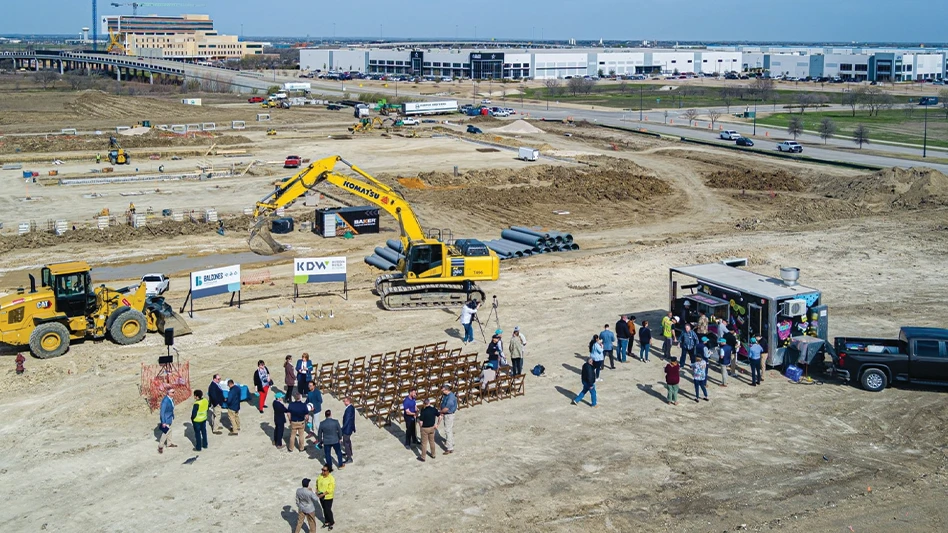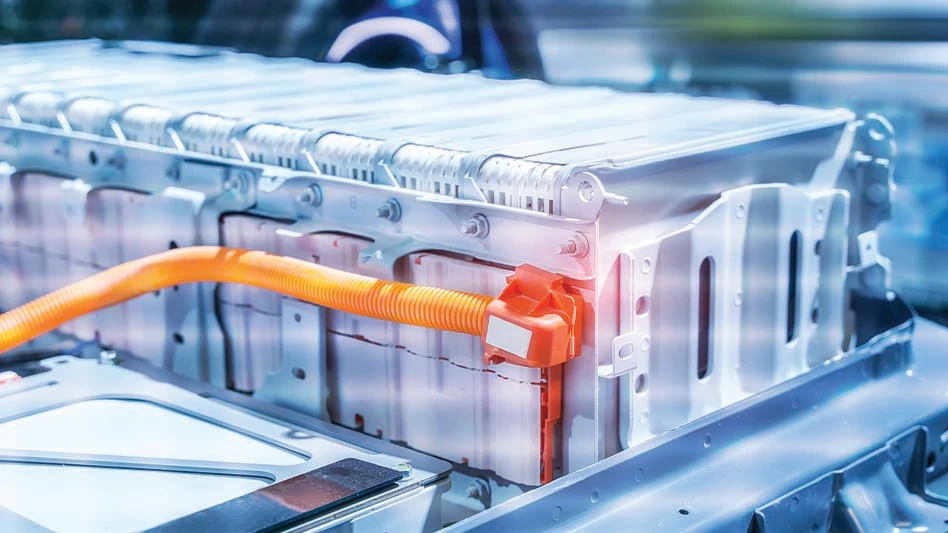The recycling and procurement arm of newsprint maker Abitibi-Consolidated has long concentrated on recovering old newspapers (ONP) and other fiber grades to help furnish its own mills. Among the established programs it has introduced is its Paper Retriever program (see story beginning on p. S33).
But in a quest to provide additional recycling services, it has expanded several of its operations, including a plant near Phoenix, to become full-fledged materials recovery facilities (MRFs). The Phoenix location in particular could serve as a model for future Abitibi-Consolidated MRF operations.
Recently, Phoenix Plant Manager Rick Meek and Abitibi-Consolidated Manager of Marketing and Public Affairs Ben Walker teamed up to answer a few questions regarding the Abitibi-Consolidated Phoenix MRF and its role in the company’s future.
RT: Please tell me about the difference between the Phoenix facility and other Abitibi-Consolidated recycling facilities.
Abitibi: Our Phoenix recycling operation, located in neighboring Chandler, Ariz., is a materials recovery facility. At this facility, the company has the ability to service nearly any client with its recycling needs.
Most of our recycling operations focus on the Abitibi Paper Retriever, our free community paper recycling program that provides participating organizations additional funds while teaching the environmental benefits of recycling. Most of the fiber collected in North America through this initiative is manufactured into recycled-content newsprint at one of our mills.
Abitibi-Consolidated makes about 4 million metric tons per year of newsprint, the most in North America. More than two-thirds, or 68 percent, of that newsprint has recycled content. The average recycled content of the company’s manufactured newsprint sheet is 37 percent. Our mill in Snowflake, Ariz., is our recycling division’s largest U.S. customer. The mill consumes approximately 500,000 tons of ONP annually and produces 100-percent recycled-content newsprint.
| Newsprint News |
|
Abitibi-Consolidated Inc., Montreal, one of the largest suppliers of newsprint to North American publishers, may be facing increased competition on both of its business fronts. In addition to trying to procure the old newspapers (ONP) grade of recovered fiber against stiff competition on its supply side, reports are indicating that makers of Chinese newsprint may be ready to offer competition on the finished paper side. An early September Bloomberg News item reports on comments made by a European newsprint executive who estimates that additional capacity going online in China will not be absorbed by that nation’s publishing industry. "You will see Chinese newsprint selling [on the] U.S. West Coast very, very soon," the executive from Hebei Norske Skog Long-Teng Paper Co. is quoted as saying. The Bloomberg item also includes comments from a Canadian securities analyst who says the competition is an unwelcome source of pain for North American based newsprint manufacturers such as Abitibi. |
Abitibi-Consolidated also operates a single-stream MRF in the Dallas/Fort Worth area, and dual-stream MRFs in Houston and San Antonio.
The fact that our Phoenix operation is located so close to our paper mill in Snowflake provides tremendous efficiencies relative to transportation costs, marketing material costs and environmental concerns for the single-stream process. The fact that the vast majority of waste and recyclable materials are paper or paper-related products makes metropolitan Phoenix a key market for Abitibi-Consolidated.
At our Phoenix facility, our MRF processing equipment allows us to process fiber from the Abitibi Paper Retriever program along with materials such as PET and HPDE and glass from curbside "single-stream" processing for local municipalities, a variety of fiber and metal commodities from commercial recycling contracts and a variety of recyclable materials from our public "buy-back" operation.
The buy-back operation is like a retail store. It’s an open center where the public and commercial customers can drive up in a car, truck or trailer onto a scale to drop off various commodities. The attendant issues a weight ticket and as the customers drive out of the center, they stop at the pay window to collect money for their recyclables.
We conduct single-stream processing in both the Chandler, Ariz., and Dallas/Fort Worth facilities for municipalities in the area. Additionally, we have numerous commercial accounts, among which is construction companies engaged in decommissioning buildings. We provide these customers a roll-off container the helps reduce their transportation costs [and] adds convenience of collection to the job site, and they sell us the recyclable materials. For other commercial accounts we provide customized recycling services including compaction units, roll-offs, pickups and drop-off services.
While we continue to develop and nurture municipal business and the Abitibi Paper Retriever, we also see and have realized tremendous opportunity in the commercial sector. We create customized services for many commercial industries where we can help them manage their waste stream more efficiently and minimize their impact on the environment. For instance, we work with several large manufacturers and distributors to collect their old corrugated containers (OCC), which we ship directly to our mill in Snowflake. Old cardboard has been a significant part of our business growth during the past few years.
In Sun Lakes, Ariz., a small retirement community with no curbside services, many of the residents are accustomed to recycling services provided in their former communities. For some time, we have had a successful Abitibi Paper Retriever program with the Sun Lakes Sheriff Posse and the entire community contributing to the program. Because the citizens wanted a way to expand into other commodities, we now have 20 containers at what has become the community recycling center where the residents recycle their aluminum and plastic, in addition to their paper.
Another illustration of our growth with commercial accounts is a recycling program we developed at the two largest shopping malls in Maricopa County, Ariz. The tenants of the mall recycle their materials and we pay them for these recyclables and market them.
In addition to growing our paper recycling business, we are just as focused on collecting and processing other recyclable materials, which we see as an important factor in the growth of Abitibi-Consolidated’s Recycling Division.
RT: What materials or services are being added in Phoenix? Why did you choose those?
A. Over the past several years, in addition to the products of ONP and OCC, our Phoenix operation has added aluminum and steel cans, HDPE and PET plastic materials, glass containers and other grades of papers (from commercial printers and other customers). In the buy-back center, we accept copper, brass, stainless steel and other metals. We selected these commodities because of the public’s interest in recycling and our ability to process and market them.
To maximize efficiency and market expertise, all of our non-fiber commodities are marketed through our centralized materials marketing department in Houston, which is managed by experienced marketers in the industry.
In some cases we have agreements with corporations with international scope, such as Anheuser-Busch, for the purchase of aluminum cans. They have honored us with their quality award on multiple occasions.
RT: What equipment do you have on site to get the job done?
A: Our equipment consists of two trommels, sorting conveyors, magnets, eddy currents, a conveyor system and two balers and the glass crusher.
RT: What markets do you buy from? What markets do you sell to?
A: We buy recyclable material from cities, commercial customers and through Abitibi-Paper Retriever. Additionally, we secure recyclable materials through commercial contractors, printers and homeowner associations, to name a few. Most of what we collect (ONP and OCC) goes to company mills. All the non-fiber commodities are sold to consuming mills throughout the West.
RT: What are some of the important issues that you see facing the domestic recycling industry?
A: The two most important issues facing our industry are: 1) the lack of public education, and 2) the need to expand our collection infrastructure.
The fact is that recycling doesn’t enjoy the level of awareness that it has in the past. Recycling rates are, by and large, static. Our belief is that we need to consistently and clearly communicate the benefits of recycling to the public every day.
Markets exist for all the materials we collect. Collecting more of these materials only means we will sell more to end-markets.
What we need to do to enhance recycling rates is provide more opportunities for people to recycle. For some people, the best way to recycle is through a curbside program, for others, it’s the Abitibi Paper Retriever drop-off program. We, as an industry, have to provide the means to recycle so consumers can choose the way they want to when they want to.
RT: How has the trend toward consolidation in the waste hauling, recycling and paper manufacturing industries affected your company?
A: Abitibi-Consolidated is itself a product of consolidation in the paper industry. In terms of waste industry consolidation, the impact has been minimal. The recycling industry consolidation helped expand our business as we have acquired some assets and continue to monitor future opportunities that help maximize efficiencies. At the same time, we’ve organically grown our recycling business where we see that growth continuing in all commodity sectors).
RT: Where do you go from here? Are you planning any future innovations, expansions or upgrades?
A: Abitibi-Consolidated will continue to grow our recycling business in paper as well as in other recyclable
commodities.
We believe in sharing best practices and continually striving to improve. Managers from across our organization are looking at what we are doing in the Phoenix market to see if we can apply improved recycling efficiencies across the entire division.
Get curated news on YOUR industry.
Enter your email to receive our newsletters.

Explore the October 2006 Issue
Check out more from this issue and find your next story to read.
Latest from Recycling Today
- Recycled steel price crosses $500 per ton threshold
- Smithers report looks at PCR plastic’s near-term prospects
- Plastics association quantifies US-EU trade dispute impacts
- Nucor expects slimmer profits in early 2025
- CP Group announces new senior vice president
- APR publishes Design Guide in French
- AmSty recorded first sales of PolyRenew Styrene in 2024
- PRE says EU’s plastic recycling industry at a breaking point





